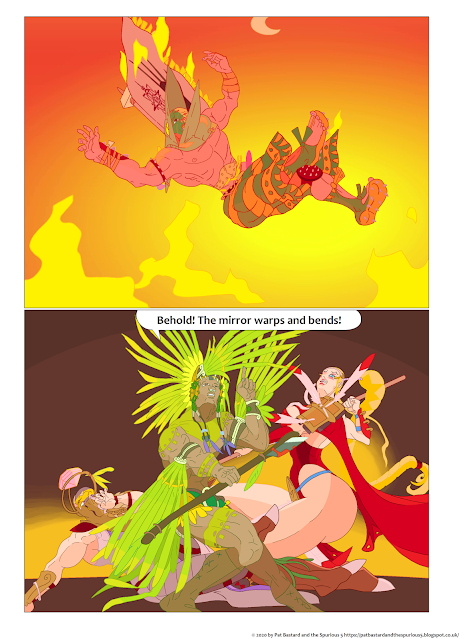Theme: Ocean Man - Ween
 |
| I once had little toys like this from Burger King or someplace. This was exactly how I looked playing with them too. |
The overwhelming consensus is that Gerry Anderson's insane puppet fixation peaked with Thunderbirds, but, as I am allergic to consensus, I say Stingray was the best. Stingray transplanted the basic plot of those old Flash Gordon serials from my late adolescence to an underwater realm, with Troy Tempest as Flash, Titan as Emperor Ming, and Marina as Princess Aura, who vied for Chad's affections with his earthling gf Dale Arden/Atlanta (who was not a city). I appreciate you don't know what the fuck I'm talking about because unlike me you weren't around during the Great Depression, but the parallels are uncanny, or, at any rate, not noticeably canny.
 |
| The great debate: smoking hot redhead puppet gf or amphibious mute puppet gf? >inb4 the muteness is the clincher. |
Both the love triangle and the off-again, on-again war with Titan and his gargling fishbros remained unresolved, as the series began yet another trend in Supermarionation by bitching out and giving us a clip show for its finale, but this is good insofar as it allowed young minds to come up with their own stories of how things might have ended. But the one-off episodes were fun too, and wildly imaginative: one had Troy and Phones discover a second ocean underneath the floor of the familiar one, which sounds like the plot of something Jules Verne might have written, or a 50s scifi kino like Mars The Angry Red Planet.
 |
| If you don't look back at her, you can't see her signing that you should have stopped to ask directions one ocean ago. |
But as I recall everyone's favourite character was X-2-0, Titan's alternately creepy and long-suffering spy sidekick whose voice actor made him sound like alternately creepy and long-suffering character actor Peter Lorre. X-2-0 lived on a creepy island with a seemingly innocuous house whose furnishings flipped around to reveal a high-tech HQ like something out of a James Bond movie.
 |
| I'd be bummed I don't have this setup in my house but, for all you know, I do. |
As the show went on, X-2-0 became the foil for Titan's potent combination of incompetence and megalomania, and the brains to his oddly statue-of-liberty-looking heavies' brawn, or, if you prefer, prawn.
 |
| Don't forget to tip your waiters! |
This made him halfway between the land-dwelling heroes (I think the Innsmouth set referred to them derisively as "terraneans") and Titan's people, mostly referred to as "aquaphibians", which sounds suspiciously like a word made up by Gerry Anderson by splicing "aqua" into "amphibian", which makes no sense because amphibians live in and out of water; the "am-" part is like in "ambidextrous", meaning they can do both. An "aquaphibian" should only be able to survive in water, but this doesn't seem to be the case, or else Marina would have quickly been less hot exotic waifu and more decomposing globster. F for linguistics, but A for entertainment. Watch Stingray you oaf!
 |
| Actual frame from Stingray. |






























































































































































































































































































